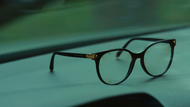Lens Coating Care: Tips for Anti-Reflective, Polarized, or Photochromic Glasses
Posted by Daniel Walters Eyewear on 23rd Apr 2025
Keeping your lenses in pristine condition enhances your vision and protects your investment. Whether you wear anti-reflective, polarized, or photochromic glasses, proper care can significantly extend the life of your eyewear. Each type of lens coating has unique properties and care requirements. Here's how to keep them spotless and functioning at their best.
Why Lens Coating Maintenance Matters
Lens coatings are designed to enhance your visual experience by reducing glare, adapting to light, or boosting clarity. However, these coatings can be delicate. Using the wrong cleaning method or materials may cause irreversible damage, leading to reduced effectiveness or the need for replacement. A consistent cleaning and care routine will help maintain their benefits over time.
Anti-Reflective (AR) Coated Lenses
Anti-reflective coatings reduce glare from screens, headlights, and bright lights. While these coatings are thin and nearly invisible, they are susceptible to damage.
Best Practices for AR Lens Care:
- Use a microfiber cloth only. Avoid paper towels or tissues, which can scratch the surface.
- Apply lens-specific cleaning spray. Spray the fabric—not the lenses directly—to prevent residue build-up.
- Rinse with lukewarm water first. This helps remove dust and debris that could scratch the coating.
- Avoid ammonia-based products. Cleaners like window sprays can deteriorate the coating over time.
Polarized Lenses
Polarized lenses are perfect for reducing glare, especially in outdoor settings. These lenses have a special chemical film that must be handled with care.
Tips for Polarized Lens Longevity:
- Rinse after exposure to salt or chlorinated water. This prevents salt and chemicals from damaging the surface.
- Please keep them in a hard case when not in use. Polarized lenses are especially prone to scratching when loose in bags or pockets.
- Clean with pH-neutral soap. Gently lather with your fingertips and rinse thoroughly.
Photochromic (Transition) Lenses
Photochromic lenses adapt to UV light, darkening in bright conditions and clearing indoors. Their dynamic nature requires thoughtful care.
Caring for Transition Lenses:
- Store away from extreme heat. Prolonged exposure to high temperatures can affect the responsiveness of the lens.
- Avoid rough clothes and excessive rubbing. This can damage the chemical layer that controls light adjustment.
- Dry thoroughly after cleaning. Moisture left on the lens can cause spotting and streaking.
General Cleaning and Storage Tips
Regardless of your lens type, some universal care habits will help maintain lens clarity and performance.
Do:
- Use lens cleaning sprays that are free of alcohol and ammonia.
- Rinse with water before wiping to avoid grinding dust into the lens.
- Dry with a clean, soft microfiber cloth only.
Don't:
- Leave glasses in a hot car or direct sunlight for extended periods.
- Use household glass cleaners.
- Place lenses face down on hard surfaces.
Conclusion
Taking care of your lens coatings isn't just about cleanliness—it's about preserving the functionality and comfort your glasses provide. With just a little effort and the right materials, you can keep your anti-reflective, polarized, or photochromic lenses looking and working like new.
Daniel Walters Eyewear
Address: 19301 Ventura Blvd, Suite 203, Tarzana, CA 91356, United States of America
Phone: +1(855) 326-4359
Email: info@danielwalters.com
Step up your eyewear game and make a statement – check out our collection at www.danielwalters.com

